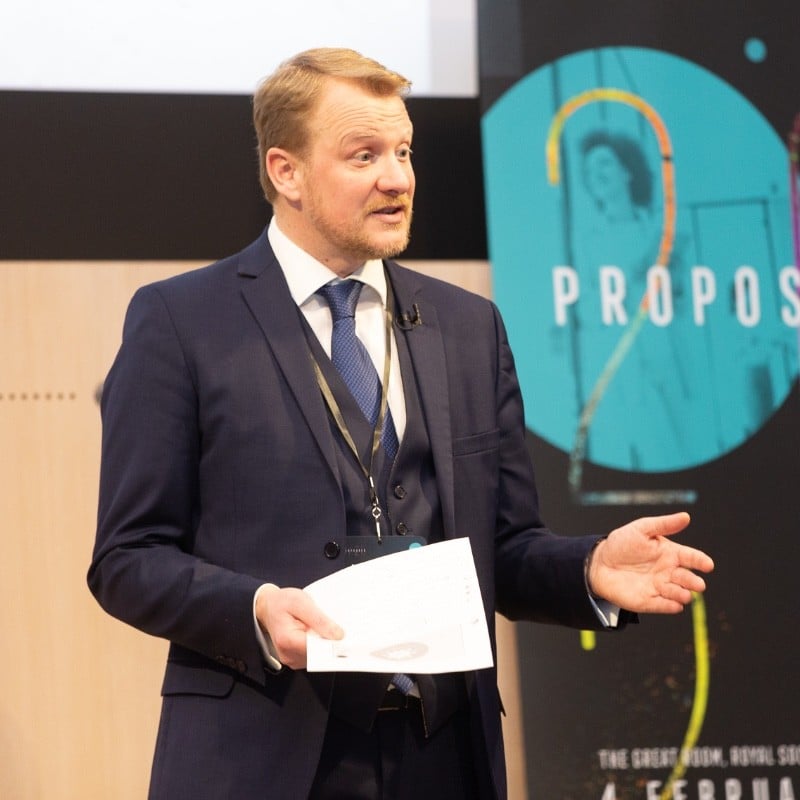BQ has turned 21. It has come of age, earning the key to the door to go boldly into the ‘bid wide world’. With BQ as a fully-fledged adult, we have a moment of calm in a quiet house to reflect upon the life of the magazine we created. And knowing that the most famous coming of age story is Great Expectations by Charles Dickens, I shall grab a file, a pie, and some brandy, to see where the story will lead.
Bidding Quarterly was first published in April 2017. At just 12 pages long it contained articles by Martin Smith, Simon Wellstead, Peter Bryans, Andy Haigh, and Jon Williams. Themed ‘Hope is Not a Strategy’ it promised ‘Tales, insight and opinion from bid industry experts.’ The theme and promise were subtly connected, as BQ was formed not in hope but as part of a carefully conceived and executed strategy to provide unconstrained thought leadership. I say ‘unconstrained’ because BQ is free and accessible to all, and its contributors are encouraged to be innovative and radical in their thinking. There’s no ‘only available if you join our club’ or policing of message if a contributor doesn’t toe a party line. It’s the exemplar of free thought, with unbounded value and potential. Proof, as the guru of future studies John Naisbitt said, “The new source of power is not money in the hands of a few, but information in the hands of many.”
Throughout its existence, BQ has been at the forefront of debates and thinking, and – as per Martin’s introduction to the first edition – has broken free of any gravitational pull to be light years ahead of anything else out there. The November ’24 edition demonstrated this by being a 39-page, 32 contributor, bumper edition that ‘went viral’ as it became essential reading to tens of thousands of people across six continents. So, BQ ‘got big’. We’re proud of that. It has resonated with readers in ways that other bidding publications have not. But has it prophesised anything? Let’s look at that first edition and see what future glimmers were forming in the cosmos.
In BQ1 Martin wrote about qualification, specifically the importance of customer groundwork and prior relationship to understand client drivers. Peter wrote about executive managers’ influence on bidding decisions via pressure to be ‘in it to win it’, and Simon discussed the emotional element of decision-making where buyers want a certain bidder to win because they like them. Andy talked about the importance of writing for the evaluator, and Jon spoke about the need for proposals to tell a compelling story that can be told internally when making the award recommendation. Within all of these was what Jon (citing BJ Lownie) described as: ‘Why us, why not them?’ This is one of the all-time great quotes of our profession, most accurately distilling our purpose as strategists, storytellers, alchemists of value propositions, and architects of confidence. The irony, of course, is that Jon was not talking about something new. He was discussing something he presented in 2001. It was relevant then, and in 2017, and it’s relevant today. It highlights the importance of knowing, and not forgetting, the core building blocks of our art. These are the foundations upon which we can build and innovate, sharing what works with those who seek the thrill of innovation and wisdom of experience.
Simon’s article, for me, gave the freshest perspective in BQ1. He advised taking the principles of advertising, marketing and design into the bid process to create a more emotional journey for the evaluator. We’ve since seen growing proof of the importance of design within proposals and the need for alignment between business development functions (sales, marketing, bidding) when crafting capture campaigns and market propositions.
It was the acknowledgment in BQ1 for the need for proactivity, by Martin and Peter, and bid team alignment, by Andy and Jon, that most predicted the future. Fast forward to today and the topic of leadership is at the forefront of discussion. ‘Proactivity’, ‘alignment’, and ‘leadership’ highlight a fundamental need within our profession for visionaries who can see different futures and create change needed to realise them. This is where BQ1 and BQ21 are one in the same, only that this edition is bigger and bolder with greater ability to make a difference.
“Go, make your mark on the world!” That’s what we wish for our children as they turn 21 and that’s what we wish for this magazine.
Dr Nigel Hudson
As Adjunct Professor at Liverpool Business School, Nigel is the world’s first bid professor. He’s been writing for BQ since Issue 2 and is our resident professional development expert. He holds a doctorate in experiential learning with bidding, has coached more than 5,000 people, and as a Consultant Bid Director has won more than £5bn of business for his clients.

